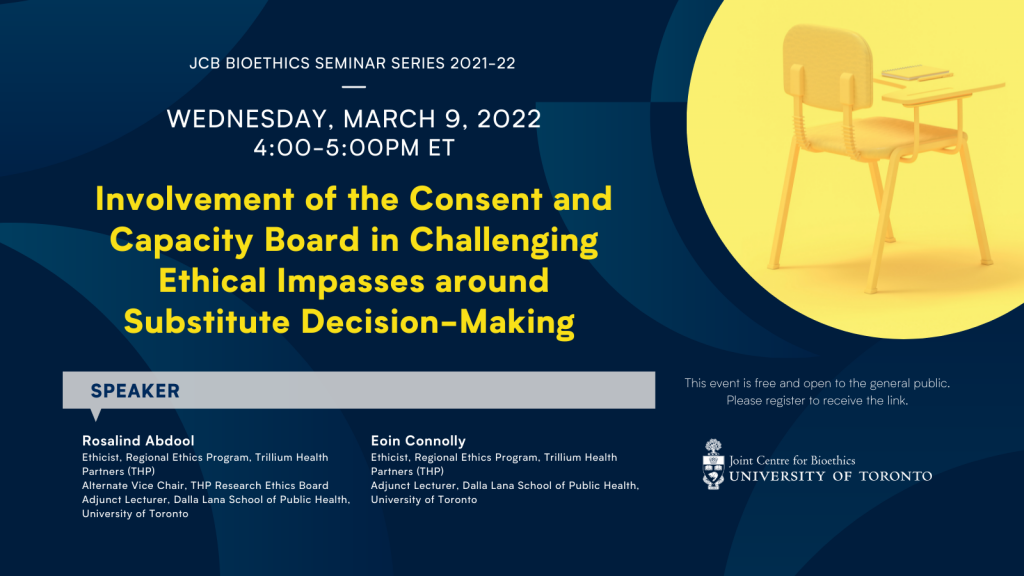- Location
- Zoom
- Series/Type
- DLSPH Event, JCB Event
- Dates
- March 9, 2022 from 4:00pm to 5:00pm
Links
JCB Seminar Series:
In Ontario, the Consent and Capacity Board (CCB), a statutory tribunal, is arguably underutilized for challenging cases related to substitute decision-making. Health care providers (HCPs) and other stakeholders are often hesitant to make an application to the CCB, uncertain of its process, outcome and impact on their relationships with the parties involved. In this presentation, we will describe our experience as ethicists alongside healthcare providers and other stakeholders in their attempt to resolve ethical issues related to substitute decision-making through the CCB. Substitute decision-making conflicts can arise regarding (1) who should be the SDM(s) and, or (2) whether the SDM(s) is following the principles for giving or refusing consent. Ethical impasses can occur between the team and SDM(s) or, at other times, between family members/ friends and the SDM(s). Despite comprehensive attempts to resolve these impasses, a submission to the CCB may be the most appropriate path forward. We will use anonymized case examples to describe what to expect in the process and the benefits of proceeding to the CCB. If appropriately engaged and those involved appropriately supported, the CCB can be an effective procedural justice mechanism in determining the next course of action. Three goals of this session include: (1) to discuss strategies to resolve SDM conflicts and avoid unnecessary adjudication, (2) to identify types of cases to escalate to the CCB, and (3) to understand the role of the CCB, including preparing for a CCB hearing from an ethics lens.
